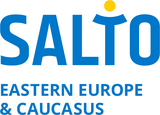Situation of the Belarusian youth organisations and young people in European youth programmes
Upon a request from thirty three democratic youth organizations of Belarus, represented by the Belarusian National Youth Council RADA, we would like to address limitations of access of Belarusian youth in participation in the Erasmus+ and European Solidarity Corps programmes.
For many years, the civil society organisations in Belarus had faced political pressure and repressions. Since 2020 presidential elections, plenty of Belarusian organisations have been liquidated and it became unsafe for activists to stay and operate in Belarus. Under current conditions, civil society organisations have no opportunity to act freely on the territory of Belarus. They had to stop their work, take a risk and hide from the authorities, or leave the country.
Many of the persecuted youth workers are actively involved in youth field, either abroad or as informal groups, risking own freedom in the country. Many of them emphasize the positive impact and importance of the Erasmus+ and European Solidarity Corps programmes on Belarusian youth and the development of civil society. Mobility programmes have an enormous positive impact on the development of Belarusian democratic society, namely, the formation of active citizenship of young people based on democratic values, the development of soft skills, intercultural dialogue, exchange of experience, proactivity, etc.
Together with RADA, we would like to underline the biggest current challenges for Belarusian young people and civil society organisations in Erasmus+ Youth and European solidarity Corps programmes:
- The fact of liquidation means to the Belarusian organisations that they no longer could be partners in the European youth programmes;
- It is dangerous for delegalized youth organisations to act on the territory of Belarus, including spreading any information as calls for participants or sharing projects results, as there is criminal liability for acting on behalf of an unregistered organization or those in process of liquidation. Youth in Belarus could be prosecuted for cooperating with liquidated organisations;
- It became more difficult for youth organisations to find participants in Belarus for international projects as more and more active young people are forced to leave the country. Belarusians settled abroad can’t participate in mobility programmes on behalf of the liquidated Belarusian youth organisations;
- There is a common feeling among Belarusian youth workers, that many European organisations and National Agencies avoid Belarusian partners as the country is associated as co-aggressor of the Russian invasion of Ukraine. This is far from true for the Belarusian civil society and it proved their commitment to European values taking political stand after the 2020 presidential elections: https://en.wikipedia.org/wiki/2020-2021_Belarusian_protests
To support the Belarusian youth, together with RADA we propose following within in the Erasmus+ Youth and European Solidarity Corps to:
- Recognise the work done so far by the liquidated Belarusian youth organisations and allow them to be project partners in Erasmus+ Youth and European Solidarity Corps programmes;
- Let the Belarusians who are on exile, but connected to the liquidated Belarusian youth organisations, take part in Erasmus+ Youth and European Solidarity Corps projects as Belarusian participants and not the country of their current residence;
- Include the Belarusian organizations and institutions connected to the official authorities of Belarus on the sanctions list and prevent them from misusing the European youth programmes and grants from the European Union;
- Consider the possibility of offering support to the liquidated Belarusian youth organizations and youth workers involved, to ensure their recognition and continuation of the work of the democratic youth movement of Belarus as a member of the European youth family;
- Examine the ways to make the participation of Belarusian youth in the European mobility programmes more accessible and safe.
The lack of special attention to the Belarusian youth work sector can lead to the following consequences:
- The intercultural learning within youth projects will be limited. Today it is already a big problem for Belarusians to share their culture, as they are commonly considered not different to Russians;
- Belarusian youth organisations will have even fewer chances to survive as they are constantly being deprived of the rights and possibilities to perform their activities;
- The civic society of Belarus will not be seen and heard, consequently, all the Belarusians get more and more associated with the current political regime in Belarus and Russian aggressive politics.
